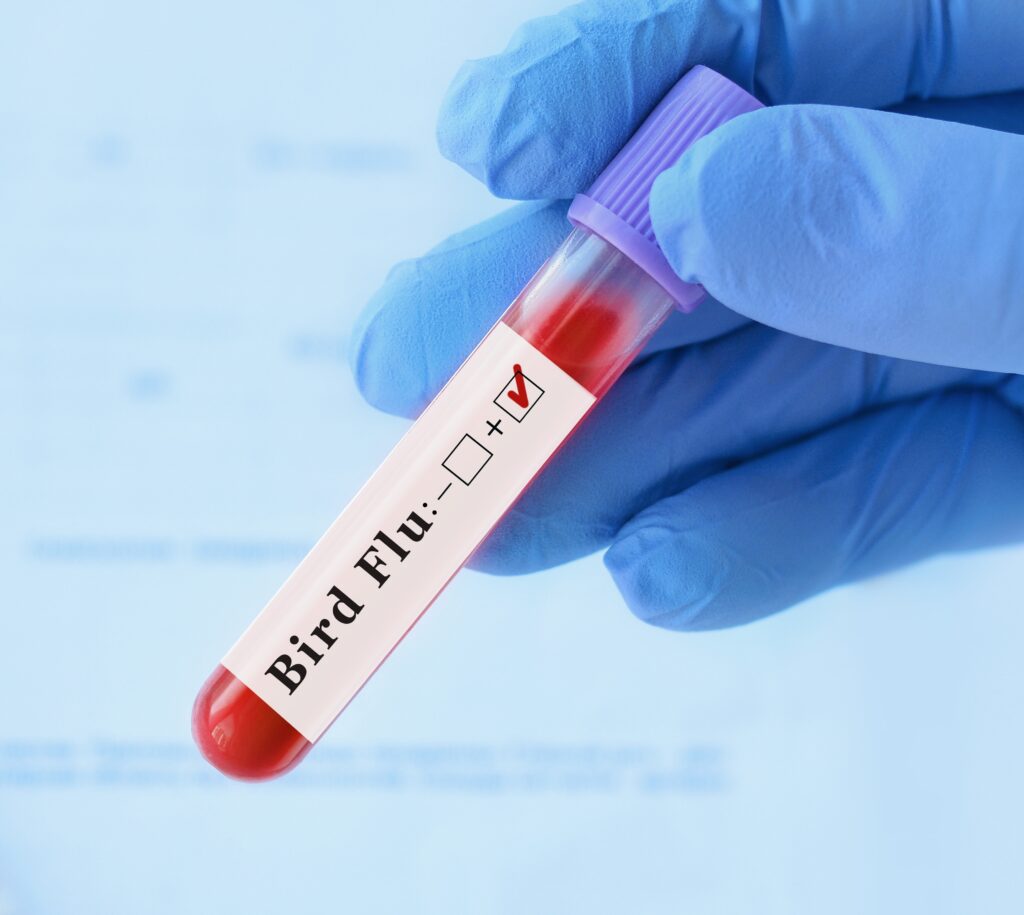A rare case of bird flu transmission to a human has been reported in the United Kingdom. Health officials confirmed that the infection occurred under specific circumstances involving prolonged exposure to infected birds. They emphasized that the risk to the general public remains very low.
Human Infection Linked to Farm Exposure
The patient contracted the DI.2 strain of bird flu, which is currently circulating in bird populations across the UK. This strain differs from the one responsible for human infections reported in the United States last year.
According to the UK Health Security Agency (UKHSA), the individual became infected after extended close contact with a large number of infected birds. The exposure occurred on a farm in the West Midlands. Officials confirmed that the virus has not spread to anyone else, underscoring the low public health risk.
Christine Middlemiss, the UK’s chief veterinary officer, highlighted the unusual nature of this case. “Bird flu is highly contagious in birds, but human infections are extremely rare and require very specific circumstances,” she said. Middlemiss assured that such events remain isolated and manageable.
Global Concerns About Bird Flu’s Potential
Bird flu outbreaks in wild birds worldwide have sparked fears about its potential to jump from animals to humans. Experts worry that the virus could mutate and become capable of spreading between people. Andrew Preston, a pathogen researcher at the University of Bath, described this possibility as “one of the most serious infectious disease threats we face.”
In the United States, bird flu outbreaks have already infected 67 humans and caused one death. However, no cases of human-to-human transmission have been recorded there. Similarly, the UK has not detected genetic mutations that would enable the virus to spread between people.
To prepare for potential risks, the UK government has stockpiled five million doses of bird flu vaccines for humans. Last month, it also expanded biosecurity measures for bird keepers across England to help contain the virus and reduce further outbreaks.
Experts Call for Vigilance and Proactive Measures
Health experts stress the need for vigilance and proactive containment strategies to limit the threat posed by bird flu. Jonathan Ball, a professor of molecular virology at the Liverpool School of Tropical Medicine, noted the importance of monitoring bird populations.
“The virus could evolve and become better adapted for human-to-human transmission,” Ball explained. He emphasized the necessity of maintaining robust surveillance of wildfowl and poultry populations. Ball also highlighted the importance of isolating human cases to prevent further spread.
Although this case in the UK represents a rare instance of bird flu transmission to a human, it reinforces the importance of preparedness. Health authorities continue to monitor the situation closely to mitigate any risks. They remain confident that proactive measures can manage the situation and prevent further public health threats.


